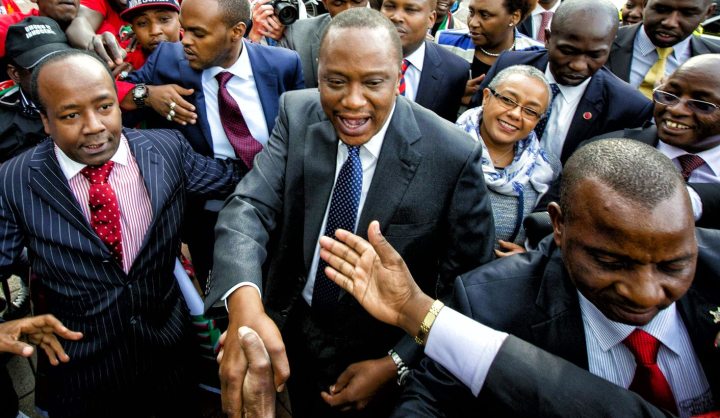Africa
Kenya: Taxpayers tapped to fund ruling party primaries

The Kenyan president’s newly formed Jubilee Party wants taxpayers to foot the sizable bill for the party’s primaries ahead of the 2017 vote. Opposition parties aren’t happy. By NJERI KIMANI.
It will cost Kenyan taxpayers 4.35-billion Kenyan shillings (R590-million) to fund President Uhuru Kenyatta’s Jubilee Party primary ahead of the 2017 general election, if a proposal by the party secretariat goes through.
National Assembly Leader of Majority Adan Duale disclosed that the two-month-old party (launched to much fanfare in September, and at great expense), had instructed its secretariat to start consultations immediately to see if the government will pay for the process.
Under a new Kenyan law, parties can choose to have their primaries overseen by the Independent Electoral and Boundaries Commission (IEBC). Jubilee are going one step further by now requesting that the IEBC also cover the costs of its involvement. Usually, parties fund primaries themselves.
Duale, in seeking the payment for the nomination, said they had already opened negotiations and were directly engaging the national treasury. “Democracy is very expensive and, world over, the treasury is mandated to caters for the cost of nominations,” he added.
Duale claims that involving the IEBC was the best means of ensuring that the nomination process is free and fair. “Many individual parties have limited manpower to handle primaries and to curb nomination flaws. It’s a major headache for the political parties and the Electoral Board is the perfect solution to this menace,” he added.
Duale pointed out that the law was silent about who should pay when a political party requests IEBC to oversee its nominations, but pointed out that parties were mandated to ask the IEBC to oversee the nominations.
“It’s up to the commission to present their budget to the treasury and we as the National Assembly are ready to approve it if brought as a supplementary budget,” Duale added.
The Jubilee Party position contradicts President Kenyatta’s claim, made during the launch of the party, that the cash to conduct the nominations would be sourced from within the party, or from private funding.
The launch came only a few days after the president had assented to the Election Law (Amendment) Act that stipulates that the IEBC can be requested to conduct and supervise party nominations for the presidential, parliamentary and county elections.
The amendment does not, however, indicate who should pay for the nominations. This is a significant omission: previous legislation had specified that political parties must bear all expenses when requesting the IEBC to supervise primaries.
The main opposition coalition, led by Orange Democratic Movement’s Raila Odinga, said that it did not intend to involve the IEBC in its nomination process, as it was simply too expensive. “We are still exploring ways to ensure that the nominations are carried out in a free and fair manner but engaging IEBC is quite a costly affair,” he added.
Other opposition figures criticised the Jubilee Party for its appeal for government funding, saying that it reflects a deeper financial insecurity. “They started from a very high note but are now financially stranded and seeking for ways of getting into people’s pockets,” said Mombasa County senator Hassan Omar, of the Wiper Democratic Movement, in a statement to newsrooms.
ODM Finance Director Joshua Kawino calculated the cost of holding the primaries at ward level as approximately 3-million Kenyan shillings (R400,000) per ward. Kenya has a total of 1,450 wards, which means the entire primary process costs in the region of 4.35-billion Kenyan shillings (R590-million) per party.
On the basis of these calculations, if the IEBC were to fund the primaries of all five major political parties, it would set the taxpayer back a whopping 21-billion Kenyan shillings (R2.8-billion).
Another concern is that the IEBC’s limited infrastructure and personnel simple could not cope with the extra demands, especially in advance of the general election. “How will we expect the general election to be flawless yet they will be already overburdened with the mandate to ensure that the nominations run smoothly? I feel that this will create unnecessary budget constraints to the election body,” said Makueni Senator Mutula Kilonzo Jr (Wiper). DM
Photo: Kenyan President Uhuru Kenyatta (C) arrives at the International Criminal Court (ICC) in The Hague, Netherlands, 08 October 2014. EPA/BART MAAT.


















 Become an Insider
Become an Insider